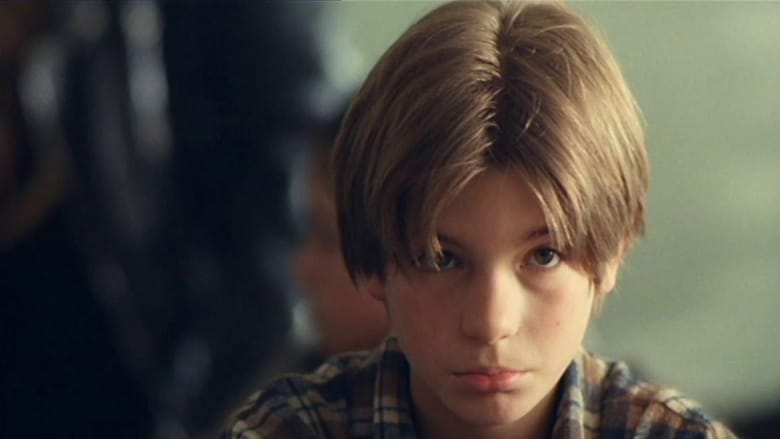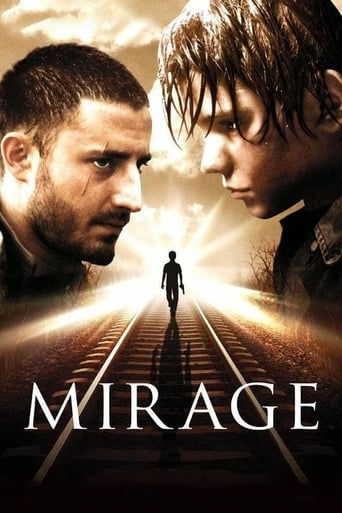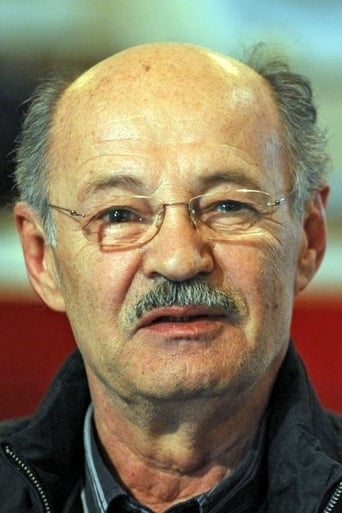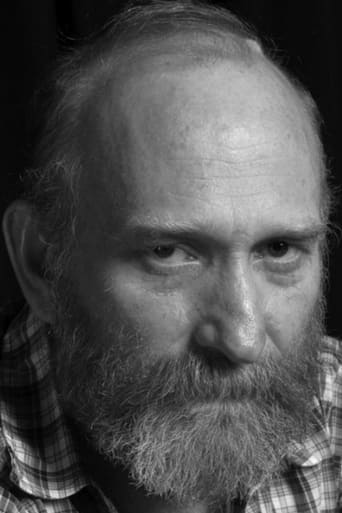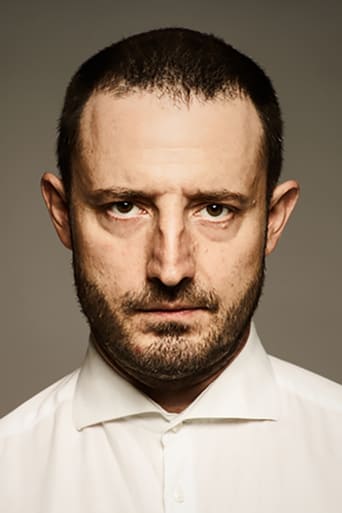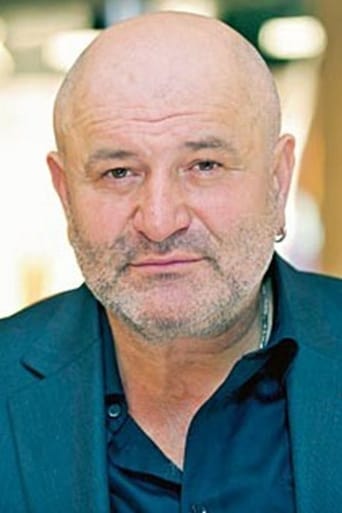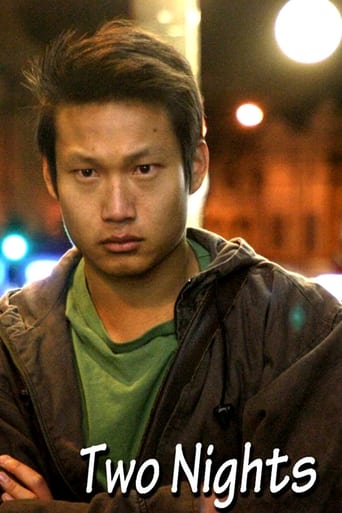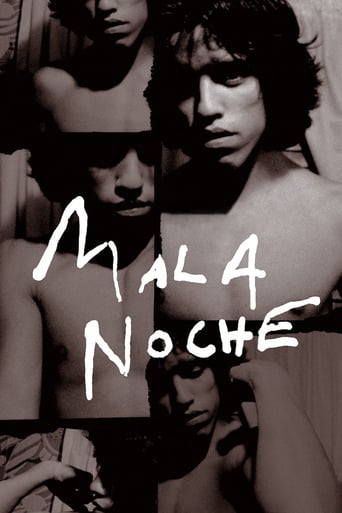Watch Mirage For Free
Mirage
As Macedonia faces its difficult transition, a boy escapes into a world of his own creation.
| Release : | 2004 |
| Rating : | 7.5 |
| Studio : | Small Moves, |
| Crew : | Cinematography, Director, |
| Cast : | Marko Kovačević Mustafa Nadarević Vlado Jovanovski Nikola Đuričko Dejan Aćimović |
| Genre : | Drama |
Watch Trailer
Cast List



Related Movies
 Paradise Now
Paradise Now
 Billy Elliot
Billy Elliot
 Dirty Dancing
Dirty Dancing
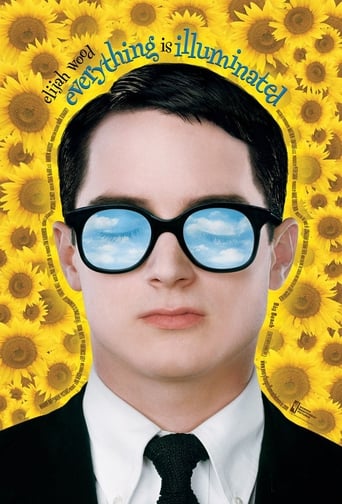 Everything Is Illuminated
Everything Is Illuminated
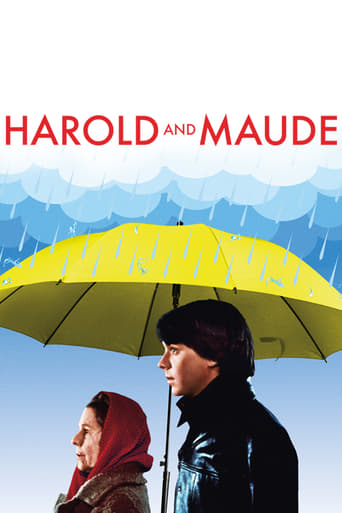 Harold and Maude
Harold and Maude
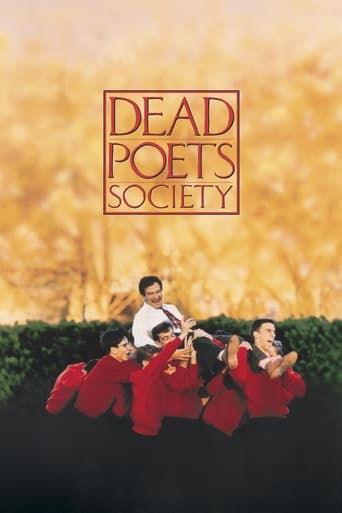 Dead Poets Society
Dead Poets Society
Reviews
So much average
For all the hype it got I was expecting a lot more!
everything you have heard about this movie is true.
Brilliant and touching
'You never get out of the sewer' is the sad summary toward the end of this remarkable film from Macedonia. Director Svetozar Ristovski co-wrote this screenplay with Grace Lea Troje, a story of the struggle of youths in a country devastated with poverty and corruption - a place without hope. The message is grim, the story is brutal, but the impact is stunning.Marko (twelve-year old Marko Kovacevic in a brilliant debut) lives with his abusive, alcoholic father Lazo (Vlado Jovanovski) whose only work other than drinking is bingo games and who is in defiance of the American occupation of Macedonia; his mute and terrified mother Angja (Elena Mosevska) who remains a pathetic victim of abuse; and his trashy, angry, abusive sister Fanny (Slavica Manaskova) - all of whom hate each other and fill their hovel along the railroad tracks with cruelty. Marko happens to be a fine student who writes poetry and is encouraged by his Bosnian Professor (Mustafa Nadarevic) to write a poem for a competition that would reward him with a trip to Paris. Marko's schoolmates are disgusting thugs who beat him at every provocation: the Professor, fighting his own demons, does little to control his outrageous classroom.Marko escapes his ugly household by finding a spot on a deserted train where he can be alone and it is here that the movie takes on magic. Marko 'creates' a friend named 'Paris' (Nikola Djuricko) who gives him hope that Marko can come with him as he leaves the little cruel village. Paris teaches him to defend himself and to support himself through stealing and shoplifting, all with the goal of escaping from Macedonia. As Marko slips down the path of crime his teacher tries in vain to feed Marko's hope of writing his way to Paris, but when the gang of boys force Marko to the limit, Marko's new self challenges them, establishing his independence. The two beacons of Hope for Marko (Professor and Paris) both fade and the ending of the film comes as a shocking surprise, yet one that mirrors Nietzsche's astute quotation.This is a grim film to watch, overflowing with brutality of both the physical and the mental types, but the journey is worth it due to the overwhelmingly fine performance by Marko Kovacevic, a lad with the same degree of quiet facial expressiveness and acting skill as that of such greats as Giulietta Masina. The gritting, well-composed cinematography is by Vladimir Samoilovski and the haunting musical score is by Klaus Hundsbichler (with a little help from Eric Satie!). This is one of those films that is disturbing in the best sense of the word: it makes us think beyond our safe borders and contemplate the plight of the oppressed, both children and adults, in a country torn by recurring violence. In Macedonian and Bosnian with English subtitles. Recommended. Grady Harp
No one can call Nietzche from being someone who spawned cheerful, optimistic blurbs about the condition of Man and His position in the Universe. So the moment a film decides to use one of his more depressing quotes -- "Hope is the worst of evils, for it prolongs the torment of man." -- it was clear to me that this was not going to be a walk in the park, but an express ride into hell with no way back up.Macedonia produces this cinematic denouncement of a film and while it's too negative to be recommended, it's not a film anyone can ignore, or watch without feeling something wrenching at the stomach. The story of Marko, the little boy who lives in a country ravaged by civil unrest and the threat of a civil war just seconds away from happening, makes for an important voice even when the writers have given him none.Marko is in the middle of the death of his family as a unit. His father is a deadbeat drunk who plays the lotto and hopes to win. His mother moves about in a haze and his sister gives him an excruciating amount of abuse for the hell of it. School is no better: there is Levi, the school thug who leads a gang, who has decided to focus his anger on him. And a teacher, originally from Bosnia (considered sacrilegious of in this country) who sees hope in Marko's sensitive writing and thinks his poetry might be the express way out of this hell, into the promise of Paris.Paris indeed arrives, in a moment of hope, as a young mercenary of sorts -- a man who has lived a dangerous life. As Marko retreats from his daily dose of abuse into an abandoned train, he meets and befriends this man who comes to teach Marko two things: that life is hopeless and a constant battle, and to eat or be eaten (the movie's tagline). As the mental and physical violence around and directed at Marko escalates and even those who had hope in him decide to turn the other face as the ones in power (Levi and his police father) gain so much control that it seems all roads of escape end at their feet, Marko takes a drastic action into his own hands.This kind of story is not new. I think the director is trying to, in telling a story of the loss of hope, an allegory about how innocence -- the future (Marko) -- can take so much before crying out and lashing at those who try to help but cannot (Marko's teacher, who didn't even assist him when Levi and his gang beat him up at his doorstep but fled the scene). I did wonder if the introduction of Paris and Marko's transformation from golden haired boy into a killing machine was a foreshadowing of what Marko would become -- since he walks away from it all right at the end while no one even flinches to see what took place. Paris, the soldier, has told Marko not to expect anything from anyone, that the only way of leaving a bad situation is leaving, not hoping, and this is exactly what Marko in the end is implied as doing.MIRAGE is not an easy movie. At times I felt, as an American used to some form of catharsis that would in one way rescue the abused character and give him the victory over evil, that this systematic abuse was too much. It set me up for a false sense of "hope" once Marko starts taking subtle control over his life and even put down his sister in one funny scene. The only thing I can infer is that MIRAGE reflects the reality of many victims of society who have no one to help them, who have been pushed so far and then beyond the edge until they embrace the darkness of life. I kept getting slight references to a Mexican film by Luis Bunuel -- LOS OLVIDADOS in which innocence was also stolen and turned into something ugly. MIRAGE, however its pessimism (which is hard to take), has its beauty, even when it's one which should approached to with caution.
"Mirage" focuses on the experience of a 12-year-old boy living in contemporary Macedonia. This film shows the extraordinary vulnerability of boys -- those beings who will become "our men" -- to the savagery of abuse and hypocrisy, at home and at school, and in society. All of these assaults are, like war itself, direct attacks on all children, of course, but especially on boys -- something we are just beginning to wake up to understanding. Here we see all the promise and hope and persistence that boys offer freely and without strings attached being battered, humiliated and finally overwhelmed by meanness born of resentment, cowardice where there should be tender, savvy guidance, and neglect by distracted, emotionally (and economically) impoverished parents. Macedonia, yes, -- but the setting could have been any neighborhood in the United States that is clouded by poverty. The lead is a awesome performance -- just heartbreaking -- by Marko Kovacevic. We watch this this boy, this surprise in the midst of banality and misery that every boy springs on us and which should delight us and perhaps could save us -- we watch him methodically terrorized and hurt. We see his hope and optimism annihilated. At first, sheer bewilderment at unremitting harshness forces his head to hang low -- again and again -- until, finally, it rears up after "just too much" and he looks at us, and acts. By then he is an early version of Paris (played by Nikola Djuricko), the man he will become, who was able just barely to promise Marko a way out -- but then lets him down. For starters, let this film be seen by every school teacher in the United States, then every father, and if the schools themselves can find the courage, by every kid in junior and senior high school in America.
MIRAGE (Iluzija), is a Macedonian film from first time director Svetozar Ristovski, about a boy who is bullied at school, neglected and emotionally abused at home, and without a friend in the world. His teacher gives him hope by encouraging his writing, but eventually he is pushed to the brink. I knew I was going to enjoy this movie immediately as it opened with one of my favorite quote from Nietzsche: "Hope is the worst of evils, for it prolongs the torments of man." The movie is about how children can endure physical violence, but not false hope.The director uses some clever metaphors in the film. Although trains constantly pass through the sleepy Macedonian village, they never stop there. Marko, the child star of the film, seeks refuge in a train graveyard, living in an abandoned train car that will never go anywhere.There is nothing new about the story, as it's been told time and again in many different languages. What makes it worth watching is an honest look at Macedonian life, it's struggle with poverty and American occupation. But what really made the film for me was a phenomenal performance by 12 year old Marko Kovacevic as Marko. He blew me away. I had the chance to meet the young talent after the film, and he's as cool as he is shy. I would certainly recommend seeing this film for his performance alone. (8/10)
